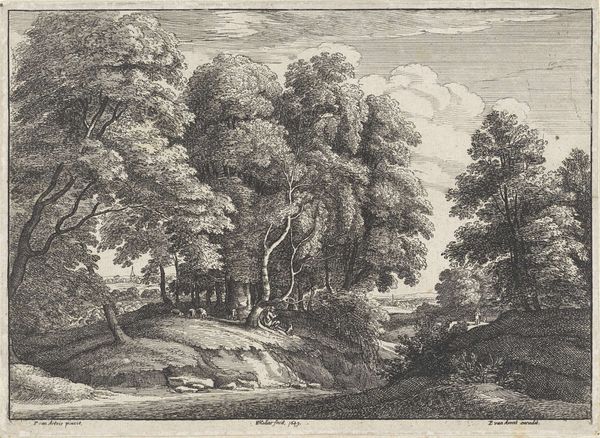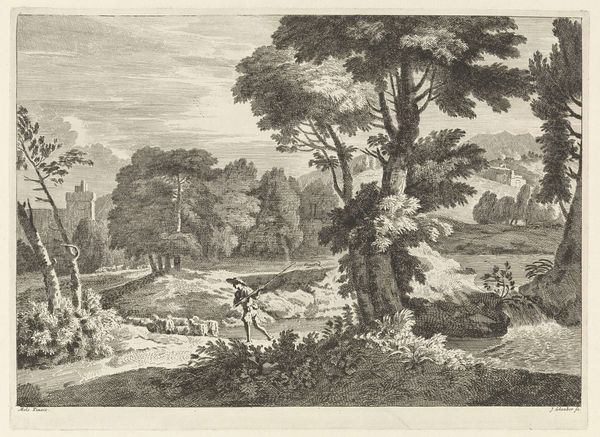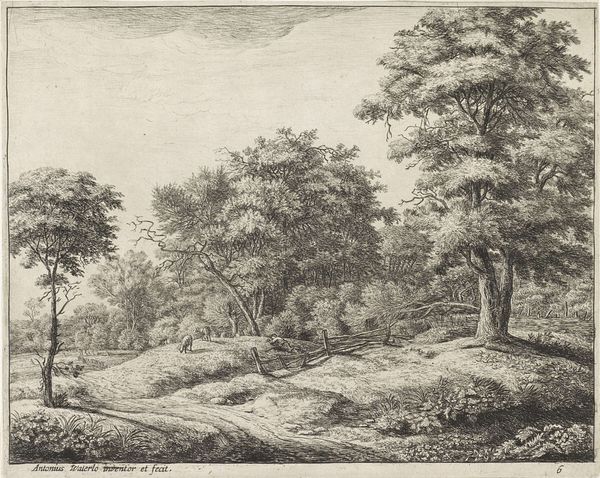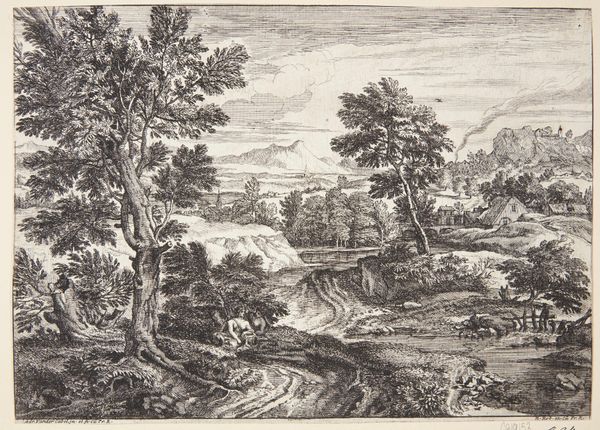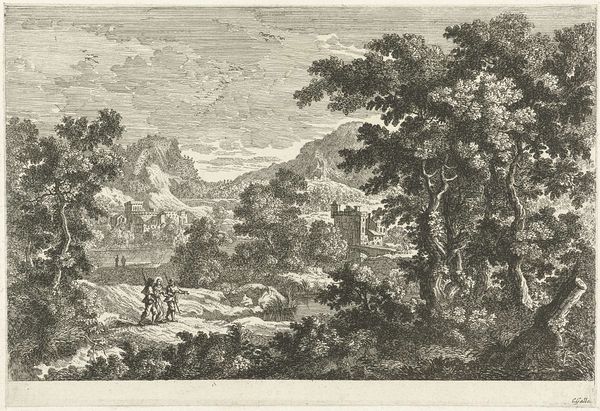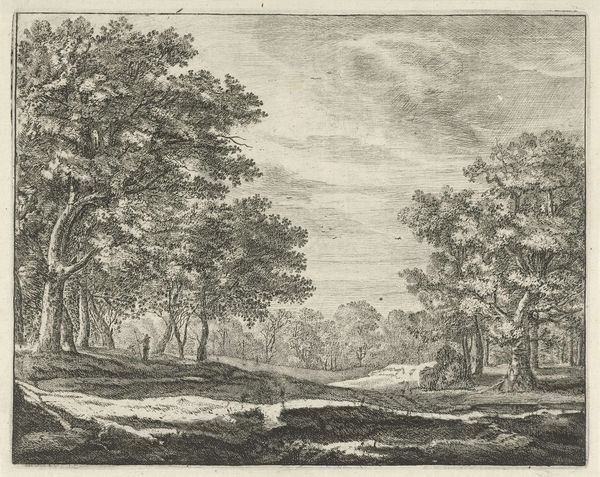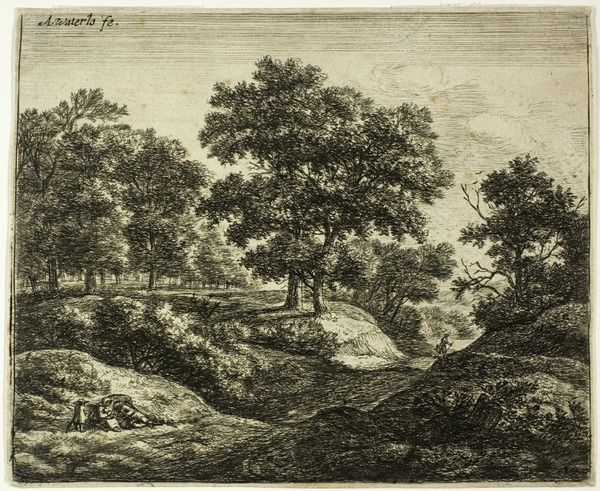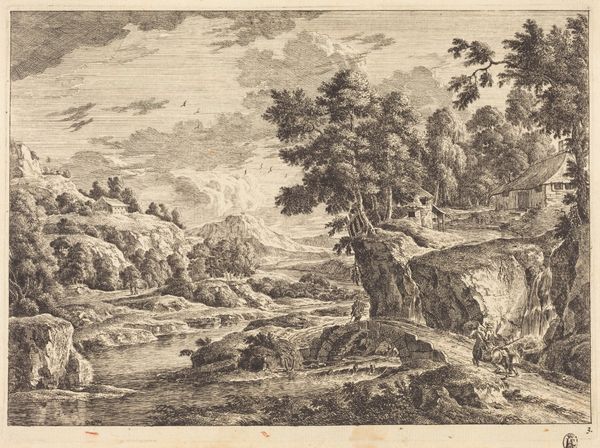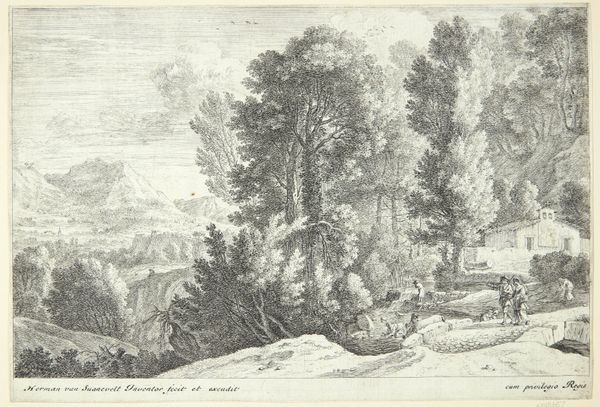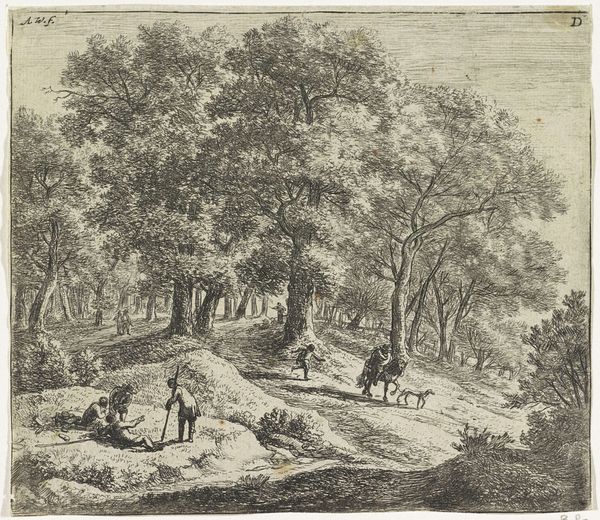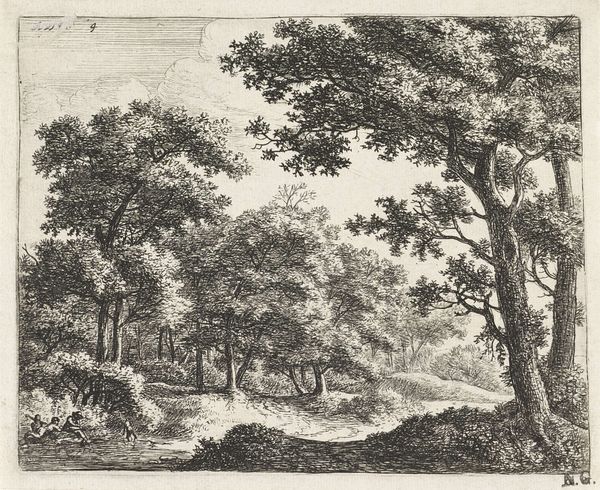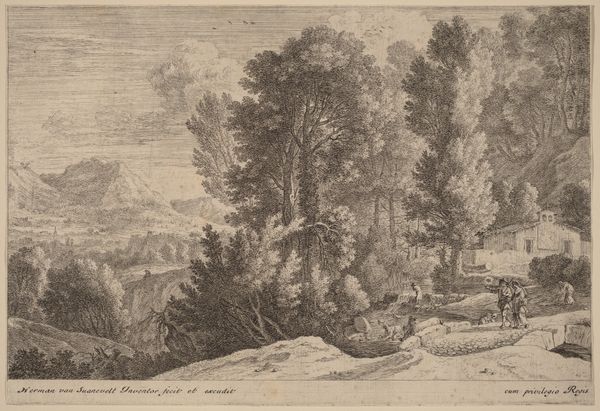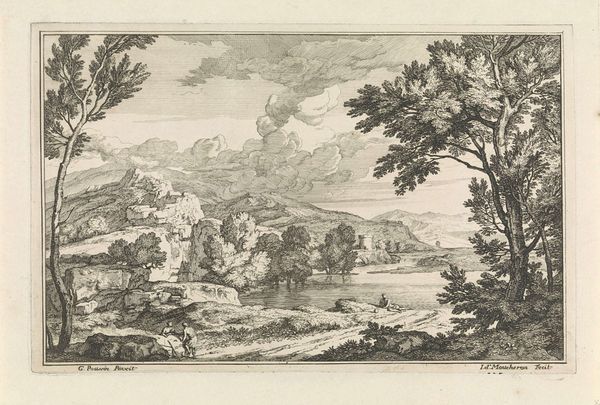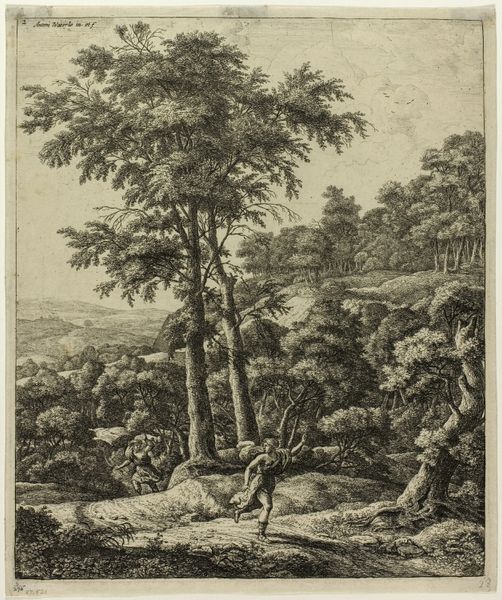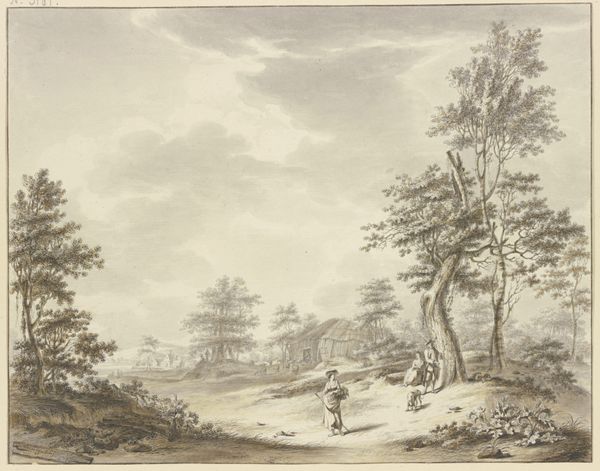
painting, plein-air, watercolor
#
painting
#
plein-air
#
landscape
#
watercolor
#
watercolour illustration
#
watercolor
#
rococo
Dimensions: height 112 mm, width 163 mm
Copyright: Rijks Museum: Open Domain
Jacob van Liender created this watercolor and pen and ink drawing, "Landschap met schapen," or "Landscape with Sheep," sometime in the 18th century. This drawing evokes the Dutch countryside, reflecting the economic and social values of the time. Van Liender likely intended to depict the Dutch countryside as prosperous and peaceful, in contrast to the burgeoning urban landscapes of the era. The sheep and shepherd serve as symbols of pastoral life, harking back to an older, idealized way of life. During the 18th century, Dutch art institutions were increasingly interested in art that promoted national identity and pride. This drawing can be interpreted as a commentary on the social structures of its time, self-consciously conservative in its celebration of rural life. By examining estate records, agricultural surveys, and other period documents, we can deepen our understanding of how the 18th-century Dutch population viewed their countryside, and what role art played in shaping and reflecting those views.
Comments
No comments
Be the first to comment and join the conversation on the ultimate creative platform.
